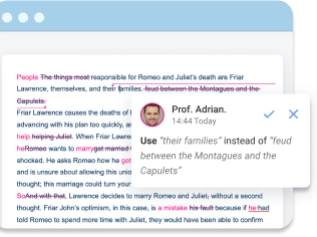How to Write an Informal Essay
Table of contents
Formal essays follow strict rules, but informal essays allow more freedom.
You may wonder, what is an informal essay? It is a short piece with a relaxed voice, often similar to a friendly talk. The informal essay definition highlights that the writer shares opinions and ideas on a more personal level.
Students often meet this form when asked to show reflection rather than only research. In the introduction, it is best to tell the reader what to expect: practical tips, examples, and structure. In the introduction, it is best to tell the reader what to expect: practical tips, examples, and structure. If you are struggling with either formal or informal formats, you can easily hire an expert to write my essay and meet all requirements.
Unlike rigid papers, this writing invites your point of view and lets you connect more personally.
What is an Informal essay?
What is an informal essay? It is writing with freedom. The writer shares ideas in words that sound natural. It avoids the rigid shape of formal essays.
Unlike a standard essay, it does not need a strict formal statement. You can express points with short sentences, simple words, and a more open plan. Papers stay informative but sound closer to speech.
This style invites the reader into a complete yet flexible story. It is less about rules, more about personal expression.
Tips for Writing an Informal Essay
How to Choose a Topic that Feels Natural?
A good start is to look at essay hook examples collections for inspiration. Before you know how to write an informal essay, pick a subject you care about. Write about your personal experiences, not about distant theories.
Students often enjoy writing about small interests. For instance, a short note on why seeds sprout faster in the shade can turn into a lively essay.
Remember to create an outline to avoid losing your point. Begin with a thesis statement, even if short, so the reader knows your direction. Do not delay — start writing early to shape your ideas.
Finding your Unique Voice
Some guides, like a persuasive essay template, suggest strong claims, but your task here differs. In an informal essay format, focus on a conversational language. Use a personal tone, as if you were talking in a relaxed conversation.
Express your thoughts with short sentences. A story about watching stars through a small telescope can feel more real than a long formal argument. Play with your writing style, yet stay clear. The reader enjoys freedom of thought, not clutter.
“Your writing is your voice. Don’t be afraid to show your opinion and share experiences that matter to you.”
Common Mistakes to Avoid
A plan keeps your essay solid. This way, your reader follows smoothly and your personal style shines.
However, many rush into writing without a plan. Some even look for essays for sale, which robs them of growth. When drafting an informal essay outline, we advise avoiding mistakes like losing structure or adding jokes without a link to your point.
Additionally, too much informal language weakens clarity. Balance a conversational tone with order. Arguments should flow, not scatter. Accordingly, always check if your thesis statement is clear.
To help you write a stronger informal essay, here are some helpful examples of common mistakes students make and tips on avoiding them.
❌ Rushing without a plan.
- Mistake: “I’ll just start writing my essay and see what happens.”
- Problem: The writing lacks structure, confusing the reader and making the essay hard to follow.
- Fix: Create a simple outline before you write. Decide on your main point, key ideas, and body paragraphs. Even in an informal essay, this keeps writing focused.
❌ Overusing informal language or jokes.
- Mistake: “OMG, this essay is so boring lol, I dunno why I’m even writing this.”
- Problem: Excessive informality distracts the reader and weakens the essay.
- Fix: Use a conversational tone, but stay clear and structured. Share personal views or anecdotes without losing focus on your point.
❌ Losing connection to the main point.
- Mistake: Writing a long story about a personal experience but forgetting to relate it to the essay topic.
- Problem: The reader may enjoy the story but miss your main idea, making the essay seem scattered.
- Fix: Make sure each paragraph ties back to your thesis. Use transition words to link ideas and ensure the writing remains cohesive.
❌ Copying formal essays without adapting.
- Mistake: “The industrial revolution marked a significant shift in human labor patterns…” (taken directly from a formal essay)
- Problem: This style is too rigid for an informal essay and doesn’t show the writer’s opinion.
- Fix: Rewrite in your own voice. Example: “Back in the industrial revolution, jobs changed so much that life felt completely different. I imagine people were really stressed but also curious about the new world.”
Structuring an Informal Essay
Introduction
To learn how to start an informal essay, focus on the opening paragraph. Thus, use an attention-grabbing line, like a short story or a sharp question.
When you write an informal essay, connect it to personal experiences. A tip: draft a tiny thesis statement early. This gives structure to your essay and guides your papers.
Also, keep the introduction short. Present the subject, sketch the outline, and lead the reader to the next passages.
- Use a question, quote, conversation, or short personal narrative to grab the reader’s attention.
- Reveal your point of view clearly from the start so the reader knows your point.
- Even in an informal essay, briefly outline what the essay will cover to guide your writing.
Body Paragraphs
An informal paragraph works best when it contains one clear thought. Accordingly, build core paragraphs with a strong topic sentence and add transition words to maintain a smooth flow.
Imagine writing about a small farming tool. First, explain its use, then move to a story of how it saved time. This logical flow lets the reader see the main idea without strain.
Formal essays demand rigid proof, but you can mix story and argument here. Still, outline your plan to keep other paragraphs linked.
- Keep each paragraph focused on one idea to make your writing clear.
- Use transition words to connect passages and maintain a smooth essay flow.
- Include examples or your own experiences to present your opinion naturally.
- Refer back to your outline to ensure all ideas support the essay’s main idea.
Conclusion
A clear end matters. You can show it with an informal paper example. Start by using conclusion summarizing skills: restate your main points, but with a twist.
A conclusion may highlight lessons learned from your experience. Strong emotions leave an impact, but stay concise. The entire essay should close with balance: a clear summary and a note that feels personal. This way, you invite the reader to reflect. Happy writing comes from clarity and thought, not length.
- Restate the main concept in a personal way, reflecting your opinion.
- Leave the reader with a thought, question, or practical tips for reflection.
- Ensure your writing ties together all passages and shows the writer’s voice clearly.
Resources for Informal Essay Writing
How to layout an essay well often depends on the tools you use. Still, students do not need expensive programs. Free libraries, open-access papers, and writing labs offer practical guidance. They show how to build an outline and keep a clear outline.
Professional writers also share informative guides online. Reading a complete example helps students see how a narrative can move point by point. Even a short research note or a simple paper draft may spark thoughts.
Many free resources help you improve informal essay writing and master informal writing techniques.
Using the right resources teaches how to structure and format core paragraphs, write a strong topic sentence, and use transition words for smooth flow. Educational websites and online libraries make writing easier and more effective while helping you express your interests naturally.
| Helpful Resources | Tips |
|---|---|
| Free Online Libraries and Writing Labs |
|
| Examples of Completed Informal Essays |
|
| Educational Websites and Professional Guides |
|
Examples and Exercises for Practice
Informal essay examples give shape to theory. Here are short passages:
Sample 1
My First Cooking Disaster
Cooking has never been my strongest skill. I once tried to make a cake for my family, thinking it would turn out like the recipes I read in formal essays about cooking techniques. Instead, the cake collapsed in the oven.
At first, I felt embarrassed. But then I realized that informal essay writing is a lot like cooking: mistakes teach you valuable lessons. I added more tips from my own experience for next time — like preheating the oven properly and following the instructions carefully.
Now, when I bake, I approach it casually, experimenting with flavors and timing. These individual stories make my informal essay interesting and relatable. Unlike formal papers, there’s room for personality and humor in informal writing.
Sample 2
Why I Love Morning Walks
I used to think mornings were boring. Alarm clocks, sleepy eyes, and rushed papers filled my routine. But taking a short walk changed everything.
During my walks, I notice small things: birds singing, leaves rustling, and the smell of fresh coffee from nearby cafes. Writing about these observations in an informal essay allows me to share my opinion naturally. I don’t need to follow the strict rules of formal essays — my writing can be playful, private, and free-flowing.
Morning walks now inspire my essay writing, giving me ideas for other projects and helping me connect with readers. The key tip is to present your ideas from your own experience — it makes the informal essay feel alive.
Sample 3
The Day I Tried Painting
I’ve never been good at painting. The first time I picked up a brush, I ended up with more paint on myself than on the canvas. I laughed at my mistakes and decided to write about the experience.
Writing this as an informal essay was freeing. I could describe the colors, the chaos, and my feelings without worrying about formal writing rules. My essay included short sentences, my personal opinion, and stories from that day.
In formal essays, such individual anecdotes are often discouraged. But in informal essay writing, they make your papers engaging. A useful tip: present your ideas honestly and let your writing reflect your personality.
These excerpts show how the main body can stay personal while balancing narrative with ideas. The word count stays low, but the sentences feel alive, and readers connect on a more private level.
Simple Practice Exercises
The skill of how to write an informal essay becomes easier with practice. Here are three quick tasks:
✏️ Write about your first failure:
- Use first person and a conversational style.
- Do not explain excessively; just tell the story.
Tip: Include your opinion about the experience and how it affected you.
Mini-example: “I spilled coffee all over my notebook before the exam. I laughed at myself, realizing panic wouldn’t help. From that day, I always double-check my bag.”
✏️ Rewrite a formal text in an informal style:
- Take a paragraph from a textbook or formal essay.
- Use short sentences, a personal tone, and casual writing.
Tip: Highlight the topic sentence and break long sentences into smaller paragraphs.
Mini-example (formal → informal):
- Formal: “The industrial revolution marked a significant shift in human labor patterns, affecting European social structures.”
- Informal: “Back in the industrial revolution, work changed a lot. People’s jobs and daily lives were completely different. Life in Europe got busy in new ways.”
✏️ Identify the essay structure in an informal excerpt:
- Pick a short, informal essay (even one you read in class).
- Find the topic sentence, body paragraphs, and conclusion.
Tip: Notice how the writer’s opinion and individual anecdotes make the essay engaging.
Conclusion
A good essay does not end without a strong close. The conclusion summarizes key points and leaves space for reflection. It is the moment to remind the reader of lessons learned.
Happy writing starts with clear tips and grows with practice. Express yourself in a personal way, but keep an eye on structure. Professional writers do the same: they mix freedom with discipline.
Remember, whether short papers or longer essays, your words carry weight. Shape them with care, and your writing will stand out!






